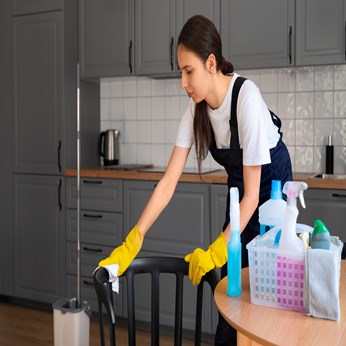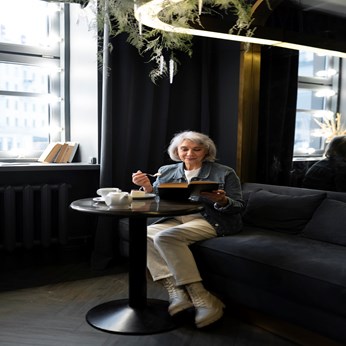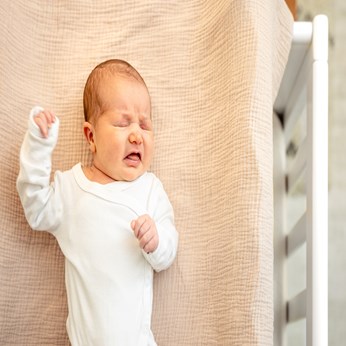A Look At Anxiety Problems In The Elderly
Anxiety disorders affect both the young and the old, with old suffering from age related stressors. We as caregivers tend to overlook these symptoms, assuming they are part and parcel of old age. My personal opinion is that we could do a lot to help elders cope with age related anxiety disorders.
A few pointers at anxiety disorders in the old:
1) All of us feel anxious and nervous when we are stressed; it turns into an anxiety disorder when the anxiety is frequent, overwhelming and affects one daily tasks, social life and relationships. It is significant to note that 10-20% of the elders suffer from anxiety; but it goes undiagnosed as it goes hand-in-hand with depression.
2) It is very rare that anxiety disorders begin in old age, though they are quite common in elders. The main reason for anxiety symptoms in elders are various stresses like retirement, loss or illness of a dear one, decline in physical, cognitive and emotional health and financial concerns; there could also be concerns like falling, being dependent on others, death or fear of being left alone.
3) There is an urgent need to attend to anxiety and anxiety disorders in the old; in its absence it could lead to problems like cognitive impairment, poor physical health, and poor quality of life.

Treatment for anxiety disorders in the elderly:
1) Psychotherapy or counseling: It is first important to determine the cause of the anxiety disorder; this is best done by a mental health professional such as a geriatric psychiatrist, psychologist, or social worker. In most cases it is necessary to go in for cognitive-behavior therapy that helps elders to manage themselves.
2) Medication: Medications would not cure the anxiety disorder, but would prove very useful in controlling the disorder while your loved elder is in therapy. Anxiety disorders are treated with antidepressants, anti-anxiety drugs, and beta-blockers; antidepressants being preferred to anti-anxiety medications as they are non-addicting and well tolerated.
3) Improving quality and quantity of sleep: This is the want of elders suffering from anxiety disorders; it would be best to improve sleep by encouraging the elder to follow a good sleep routine before retiring to bed at night. It may in most cases require medicines.
4) Adoption of stress management techniques: Adoption of these techniques like meditation, prayer, deep breathing from the lower abdomen, yoga, progressive relaxation and tai chi can prove highly beneficial in lower anxiety.
5) Staying active physically and intellectually: Encouraging the elder to follow routines, do exercises and socialize would help. It would also help to take up relaxing activities and hobbies like gardening, fishing, art, and music.
6) Avoid triggers that aggravate anxiety symptoms: This includes avoiding caffeine, smoking, over the counter cold medications and alcohol.
Finally we as caregivers need to encourage our loved elders to take treatment for anxiety disorders; this is the greatest gift we can give them in old age.
Image Courtesy: Google
Take the next step toward your goals
Share your requirement and find the best care providers in your area
-
Looking for a caretaker’s job? Build your profile and get in touch with families in your vicinity.
-
Discover nannies, babysitters, cooks, housekeepers, pet sitters, and elder care under one roof.
-
Get all the support you need to run a successful care center.
-
Search for appropriate centers near you depending on your needs.
Care Corner Insights: Blog Library

Best Child Care Hacks for Busy Indian Moms and Dads in the U.S.
Balancing work, home, and parenting is challenging, especially for Indian parents living in the U.S. Between cultural expectations, school schedules, extracurricular activities, and household responsibilities, managing daily life can often feel overw

A Revolutionary Guide for Indian Families in California
Living in California offers incredible opportunities, but Indian families often face unique challenges—balancing cultural values, adapting to a fast-paced lifestyle, handling child care, navigating school systems, and building a strong community away

8 Powerful Secrets to Raising Happy Kids While Working Full-Time in San Diego, CA
Balancing a demanding full-time job with raising happy, emotionally secure kids isn’t easy—especially in a vibrant, fast-paced city like San Diego. But with the right strategies, you can create a joyful, connected home environment without burning out

What’s the Best Way to Find a Trustworthy Indian Nanny in Fremont, CA ?
Hiring a nanny for your family is a big decision, especially when you want someone who understands your cultural values and parenting style. If you’re looking for a trustworthy Indian nanny in Fremont, CA, here are some effective strategies to make t

7 Proven Child Care Ideas That Make Parenting Easier for Indian Families in the U.S.
Raising children in the U.S. comes with a unique blend of opportunities and challenges—especially for Indian families trying to balance cultural values, busy work schedules, and daily childcare responsibilities. These seven proven childcare ideas can

9 Must-Know Tips for Hiring a Nanny in San Jose
Finding the right nanny for your family in San Jose can feel like a huge task — especially when you want someone who is trustworthy, experienced, and a perfect match for your child’s needs. Whether you’re a first-time parent or looking to replace you

10 Revolutionary Child Care Tips Every Indian Family in California Should Know in 2025
1. Bring India Home — Every Day Your children might grow up in California, but they can still grow with India. Let Indian traditions live inside your home — evening prayers, storytelling in your native language, or cooking regional dishes together.

Deep Cleaning Your House: Room-by-Room Checklist for a Thorough Clean
A sparkling clean home isn’t just about looks—it’s about health, comfort, and peace of mind. Whether you’re prepping for a festival, hosting guests, or just tired of the clutter, a deep clean can transform your space. But where do you start? Here’s a

What are Senior Apartments? Experts Explain Independent Living for Older Adults
As we age, our needs and lifestyles evolve—but one thing remains constant: the desire for independence. Senior apartments are designed precisely with this in mind, offering older adults a living arrangement that balances freedom with comfort, safety,

Baby Sleep Problems: What is Sleep Regression and How to Handle It
If you’re a parent, you know that baby sleep is one of the greatest mysteries of life. One day your little one is snoozing like an angel, and the next day they’re suddenly waking up every hour, fussing, or refusing to nap. Before you panic, there’s a